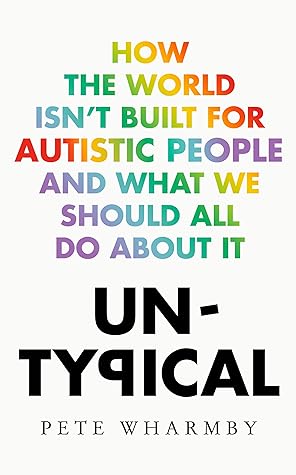More on this book
Community
Kindle Notes & Highlights
by
Pete Wharmby
Read between
November 9 - November 16, 2024
By responding with a ‘Fine, thanks’, I will have lied twice. Once with the ‘fine’ – my weekend was awful and I’m still feeling terrible about it (hence the huge coffee) – and second with the ‘thanks’ – I’ve nothing to be thankful for here: they’ve just forced me to lie about my feelings when I would rather have said nothing at all.
overthinking is what autistic people do, to the point I’m surprised it isn’t among the diagnostic criteria.
This exchange hounded me for the entirety of the Christmas holiday that year, only briefly fading in the evenings when I’d had a few glasses of beer, as I couldn’t stop myself dissecting the moment and trying to second-guess how he was likely to respond in the new year.
It’s a process I’m very familiar with, whereby I consider every possible likely outcome that I can imagine, and try to figure out how I’ll cope with it should it come to pass, rather like when Doctor Strange visits millions of future timelines searching for the one where the Avengers win the day.
I’ve no idea when it’s OK for me to take my turn, and so I often find myself sitting very quietly, intently waiting for a pause long enough to represent an unambiguous jumping-off point.
A very common trait that many autistic people share is a desire to share information about our special interests.
A lot of autistic adults will have learned the hard way that this desire to share is not met in the same spirit, and as such will force themselves to not mention it.
It always feels to me that the neurotypical world puts arbitrary limits on how passionate one is ‘allowed’ to be about a subject.
Autistic people are regularly labelled as rude, evasive or untrustworthy based on this one trait alone, and we very quickly learn that if we want to have a relatively pain-free experience dealing with neurotypicals, we’re going to have to make eye contact some of the time. This energy-draining, majority-pleasing, difficult act is what we call ‘camouflaging’ or, more often, ‘masking’.
We learn to adopt a kind of persona – based on all the things our extremely observant brains have noticed in other people – in order to please those around us so they stop bullying us or causing us harm.
To take stock: masking is a very tiring thing, and we autistic people feel, for the most part, that we’re forced into it by a society who cannot accept us for who we are. It’s impossible to sustain forever, however, so there has to come a point where we drop the mask. And what inevitably happens when we do this? The answer is as predictable as it is depressing: we’re immediately reminded why we put it on in the first place.
There’s a strange catharsis in finding out you’re neurodivergent, a kind of epiphany that there’s a reason why things are the way they are. As a result, we exhale for the first time in years, lean into our autistic traits a little, let our mask slip and … well, we pay the price almost immediately. We learn very quickly that our unmasked selves are simply not welcome and so we hurriedly fix our masks back on – nail them firm for fear of them dislodging – and realise we’ll never be free to be ourselves.
If you’re going to make life easier for the autistic people around you, then gradually allowing us to drop our mask is crucial. However, this comes with a huge proviso: you need to be able to handle whoever lies behind it. You must manage to adapt your expectations of your friend or family member, and show them that their true selves are even more welcome than their masked personas. It’s upsetting how rarely this happens and how often we must retreat back behind the mask, ashamed of ourselves for being so unacceptable even to our own friends.
(it’s amazing how cruel a person can be to themselves when trying to explain behaviour caused by a disability they don’t know they have).
I’m extremely sensitive to worries about bothering other people, for any reason. I’d rather die of thirst than ask someone if I can have some water. This is not a form of hyper-passive–aggression – it’s a fear of disturbing other people’s peace. I suppose this stems from knowing how precious my own peace is.


